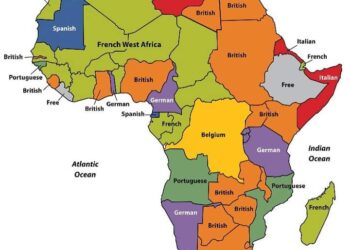UJI ABDULLAHI ILIYASU examines the refusal of the Academic Staff Union of Universities (ASUU), to enroll on the Integrated Payroll and Personnel Information System (IPPIS) the federal government introduced to check corruption in public sector, ASUU’s incessant industrial conflicts with the federal government and asks whether it is justified for ASUU to go on further strike or change tactics.
Background
The federal government recently said that federal civil servants must enroll on the Integrated Payroll and Personnel Information System (IPPIS) in order to curb corruption in the public service. But university lecturers, under the aegis of ASUU, said the platform does not capture the peculiarities of the academic community, so if the federal stops their salary the nation’s public universities will be shut down.
The IPPIS may be the immediate cause of any impending industrial action by ASUU, but the fundamental reasons the lecturers are angry stems from the government’s inability to honour previous agreements it had entered into with them, all bordering on and welfare of lecturers, poor education funding, collapsed infrastructure in public universities and proliferation of state governments-owned universities without proper care.
Threats of strike
Academic Staff Union of Universities (ASUU) had threatened to embark on strike if the federal government stopped salaries of lecturers in January.
ASUU said that a circular from the office of the Accountant-General of the Federation (AGF) was sent to all public universities before January with information to withhold January salary of lecturers who refused to enrol on the IPPIS platform.
But ASUU stated at its congress that members had resolved to activate ‘no pay, no work’ as soon as the government stopped their salaries.
The chairman, University of Ibadan (UI) chapter of ASUU, Professor Deji Omole, while reacting to the development maintained that the union was ready to pursue her stand on autonomy and infringement on FGN-ASUU agreements which IPPIS would erode.
Omole stated that it was unfortunate that even the president could not be trusted after assuring the union to look into the matter and set-up a committee to harmonise University Transparency and Accountability Solutions (UTAS) and IPPIS tabled before him at the last meeting.
ASUU said the move would throw public universities into another crisis.
the lecturers rejected IPPIS on point of law, principle and rule of law but has offered an alternative platform which has been named UTAS, which would take care of university peculiarities.
“If those ruling us are sincere, they should ask their sons and daughters who school in universities in the UK how universities run.
“Only patriots can work in our hellish condition. Our position is that the principles of IPPIS are in contradiction to the principles of the autonomy of the university system and the constitution is clear enough because each university has its legal pattern and it doesn’t have provision for IPPIS and it does not even capture the peculiarities of the university system.
“We are ready for them. We are not slaves that can be subjected to routine humiliation by government appointees,” Omole said.
Also speaking on the matter Sule Emmanuel Egya, a professor of African Literature and Cultural Studies at Ibrahim Badamasi Ibrahim University, Lapai (IBBUL) agreed that IPPIS is not good for universities. He said, “The Integrated Payroll and Personnel Information System (IPPIS) is one way of reducing the amount of money that should be going to universities. I am not surprised that they are coming up with IPPIS and other measures that will impoverish universities…I think the government should drop the idea of using IPPIS to fight corruption in universities.
“It should adopt other measures. Have there not been measures for fighting corruption in the university before the emergence of the IPPIS? It does not capture the peculiarities in the university system.”
IPPIS not the main issue
Meanwhile the national chairman of Academic Staff Union of Universities (ASUU), Professor Biodun Ogunyemi, had earlier told Blueprint that the payment of January 2020 salary to ASUU members who had not enrolled on IPPIS did not in any way change their position on the new pay system which violates the university autonomy.
He however blamed the media for creating hypes on IPPIS leaving the main substance of ASUU’s demands, which borders on the 2019 memorandum of understanding with the federal government.
On why some staff of federal universities disregarded ASUU and went ahead to register on the platform, he said the university community has two unions, the Non Academic Staff Union (NASU) and ASUU.
“Non Academic staff can enroll on IPPIS based on how they see it, but ASUU members who registered on IPPIS are on their own. When appropriate time comes, ASUU will know what to do to them,” Ogunyemi said.
The federal government had earlier directed that lecturers who had not enrolled on IPPIS should not be paid their salaries beginning from January 2020, but recanted its position and paid the lecturers who were warming up for an industrial showdown with government.
ASUU had threatened to implement “no salary, no work” decision it had reached at its National Executive Council (NEC) meeting in Minna, Niger state capital.
The director of IPPIS in the office of the Accountant-General of the Federation, Olusegun Olufehinti, had requested the minister of finance, Mrs Zainab Ahmed, to stop the release of funds for January salaries of federal universities, polytechnics and colleges of education.
However, in order to avert imminent strike, the federal government paid the lecturers their January salary.
In a telephone conversation with Blueprint to confirm the stand of ASUU in view of the payment of January salary by the federal government, ASUU chairman said that the union was looking forward to reopening talks with the federal government on the 2009 agreement on funding of tertiary institutions.
“We are still discussing with government and we will hold a meeting very soon. It is after that meeting that we can comment on issues about it. “The 2009 agreement is one of our demands, like we said, we are not just talking about IPPIS; we are talking about all issues that are outstanding in our 2009 Memorandum of Action. There are five issues which we are renegotiating before the IPPIS came in, and the media are creating hypes about it leaving the main issues.
“The five main issues include, “renegotiation; visitation to universities; funds for recapitalisation; payment of arrears of Earned Allowances for lecturers as well as funding of state universities, are all part of the outstanding demands that will be tabled for discussion at the meeting.” Ogunyemi said.
The union leader said the union had always seen the IPPIS as a distraction because there were more serious issues pending to be addressed by the federal government.
He said that ASUU was insisting on an opportunity to discuss its alternative payment platform, adding that it is left for government to do the needful and call for dialogue.
“If the federal government is ready to discuss, we are also ready. But we are not to decide for them. Our position remains the same if they choose to stop the salaries of our members tomorrow, we will also respond appropriately.”
What citizens say
For the constant strikes embarked upon by ASUU which continue to disrupt activities in the universities, Blueprint went to town to get the reactions of some citizens.
Mr Joshua Daniel, a civil servant said, “When I got admission to the university, the first fear on my mind was ASUU strike. I prayed they didn’t go on strike until I completed my degree programme. But my fear came to pass. ASUU went on strike three times before I graduated. I ended up spending five years instead of four.”
Shuaibu Magaji, health personnel, said he had forgotten his studies due to ASUU strike in his first year.
“The first year I entered the university, ASUU went on a strike for complete one year. I had even forgotten that I was a student at the time the strike was called off. I forgot because it was during fuel scarcity in 1999 and I was introduced to fuel hawking in the black market and making some money. The federal government needs to do something to halt the lecturers.”
“Maria Thomas, civil servant, said, “ASUU needs to think about other means in their struggle with the federal government as it affects university education. You cannot continue to adopt a formula in Mathematics that does not lead you to any solution.
“Do you do the same thing repeatedly and expect different results? Strike does not work in Nigeria. Has the federal government implemented all the agreements it had previously entered into with the university teachers? Also, if your employer said, ‘this is what I want’, why should you argue? Go ahead and do what he wants. If the business collapses, he will realise his mistakes?”
Meanwhile Professor Egya has a different opinion on the issue. In an exclusive interview with Blueprint, he said, “In my view, even if ASUU goes on strike 10 times in a year, it is justified. I am in the system and I know that the system is a mess. So if ASUU goes on strike 10 times in a year it is justified.
“If the government doesn’t want ASUU to go on strike, it should put more money in the university education or at least provide the minimum standard in the universities. I do not know of any university that gives research grant; it is sad. How do you drive a society without research? How can a societal move forward without research?
“And don’t argue that because TETFund is giving money for research, universities shouldn’t give money for research. Not all lecturers can assess research grants in TETFund.
“Where I am teaching as a professor, my university should be able to earmark research grant for me, should be able to provide every conducive environment for me to be able to undertake such research. They should also make conducive environment for teaching and learning between teachers and students. All these things hardly exist in our universities. The state governments and federal government should revisit their very poor budgetary allocations to education to stop ASUU from going on strike.”
He said countries that are not suffering from out-of-school children syndrome or countries that are not educationally disadvantaged put more money in education than Nigeria, which is educationally disadvantaged, wondering why should annual education budgets hover around seven per cent in a society where millions of children are out of school.
“Why? So, at the end of the day, ASUU is justified to go on strike.”
Ogunyemi



